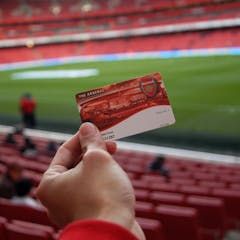
Articles on Neuroeconomics
Displaying all articles

Amazon.com and others are eager to fill the skies with drones delivering packages at all hours. Convenient, yes, but it could transform – and not in a good way – our ability to make informed choices.

In the lead-up to next week’s Melbourne Cup, bookmaker Tom Waterhouse is heavily marketing a “$25 million bet that stops a nation”. All you have to do is give him A$10 and if you place the first 10 horses…

Some shares have new owners every second. Today much of the buying and selling is done by computers, but some still rely on human intuition – the gut feeling of the experienced trader. “Nobody can predict…

We are faced with a myriad of choice in our lives - but an emerging body of work suggests the more choice we’re faced with, the more likely we’ll make a poor decision. The conundrum is called the “curse…

Whether choosing a dinner, a car, a spouse or an investment, experts now know what part of the brain our likes and dislikes are encoded, how we represent alternatives, and even how we choose. This has…

In times of financial uncertainty and crisis, high stress reactions lead to traders becoming more risk averse, which drives pessimism and further falls in finance, according to a new study. This is because…

Would you prefer a beer right now or a bottle of champagne next week? So begins an interesting new study published today in the journal PloS Biology. Of course these kinds of choices feature throughout…

In a 2008 paper on neuroeconomics, Carnegie Mellon University economist George Loewenstein said: “Whereas psychologists tend to view humans as fallible and sometime even self-destructive, economists tend…
